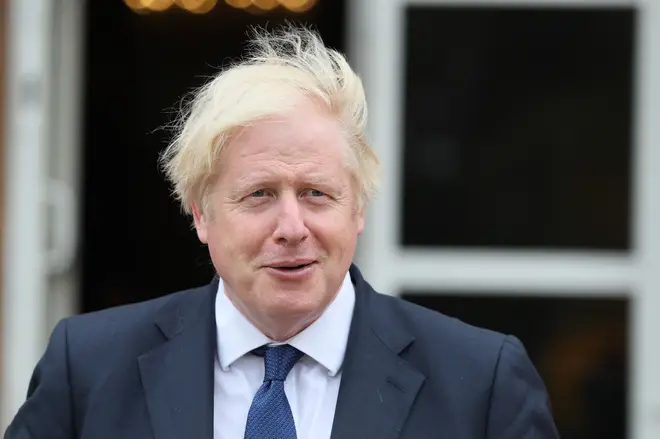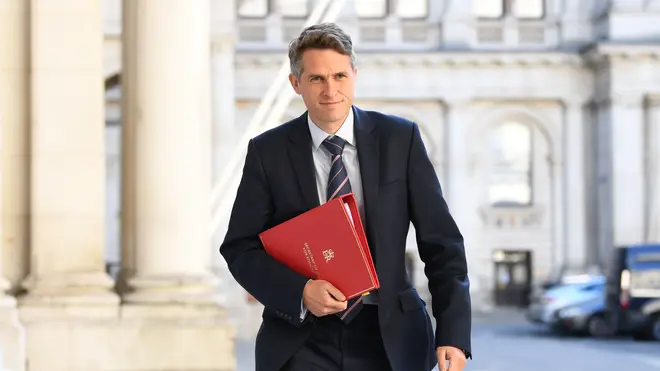
Henry Riley 4am - 7am
24 August 2020, 20:28

LBC's Westminster Correspondent Ben Kentish on why getting pupils in England back to school is so important for the Prime Minister and Education Secretary Gavin Williamson.
Gavin Williamson had more than enough in his in-tray even before last week’s exams fiasco.
Finding a way to quell nationwide fury over A Level and GCSE results – and then the lack of BTEC results – was not supposed to be the main task facing the Education Secretary.
Top of the to-do list was ensuring that schools across England fully reopen from next week.
The row over exams was a distraction from that task, and has damaged Mr Williamson’s standing and that of the government as a whole.
Still, the Conservatives remain (narrowly) ahead in the polls and, despite having offered his resignation to Boris Johnson, the Education Secretary has kept his job - for now at least.
PM @BorisJohnson explains the steps schools across the country are taking to get students back to school safely. pic.twitter.com/YFM8ZhPk2A
— UK Prime Minister (@10DowningStreet) August 24, 2020
Most insiders in Westminster believe that whether Mr Williamson survives the next Cabinet reshuffle depends on how he handles the reopening of schools from next week.
As families prepare to haul the school uniform from the back of the wardrobe, concerns about safety in schools have been raised by parents and teachers alike, with teaching unions calling for further clarity on government guidance.
The scale of the task that ministers face to win this argument is evident in polling suggesting that almost a third of parents (32%) are still uncomfortable about sending their children back to school, and 14% say they will refuse to do so.
That is why Johnson and Williamson have both taken to the airwaves to insist it is safe for pupils to go back to the classroom, including the Prime Minister insisting it was “vitally important” for children to return.
It is why the chief medical officers from across the UK announced over the weekend that they believe the overall risk of children not going to school is now far greater than the risk of them doing so.
And it is why ministers released the findings of a Public Health England study showing that, when schools partially reopened in June, there were just 30 outbreaks detected in more than 20,000 schools – 0.01% of the total that were open.

That was all part of government efforts to reassure parents and teachers, but fears will have been fuelled by news of an outbreak at a school in Dundee, where 17 teachers and two pupils have tested positive.
It is a stark reminder that, while the risk of outbreaks in schools may be low, it is still very real.
Ministers, in conjunction with headteachers and local councils, have spent the summer trying to ensure that schools are as “Covid-secure” as they can be when pupils return.
But one measure that won’t be in place – in England at least – is the use of face masks in the classroom.
Ministers believe that this would get in the way of interactions between teachers and students, and No10 insists there are no plans to recommend that face coverings be worn in school settings.
Once again, Scotland has taken a different approach. Nicola Sturgeon said on that the Scottish government is likely to recommend that face coverings are worn in school corridors and canteens, although not in classrooms.
That announcement came after the World Health Organisation recommended that all children over the age of 12 should wear a mask.
The success, or otherwise, of the government’s efforts to reassure parents and teachers will only become clear from next week.
At stake is the potential health and future prospects of millions of children across England.
No10 will be all too aware that the, with them, the standing of the Boris Johnson’s government and the future of Gavin Williamson’s place in it, are also, once again, on the line.